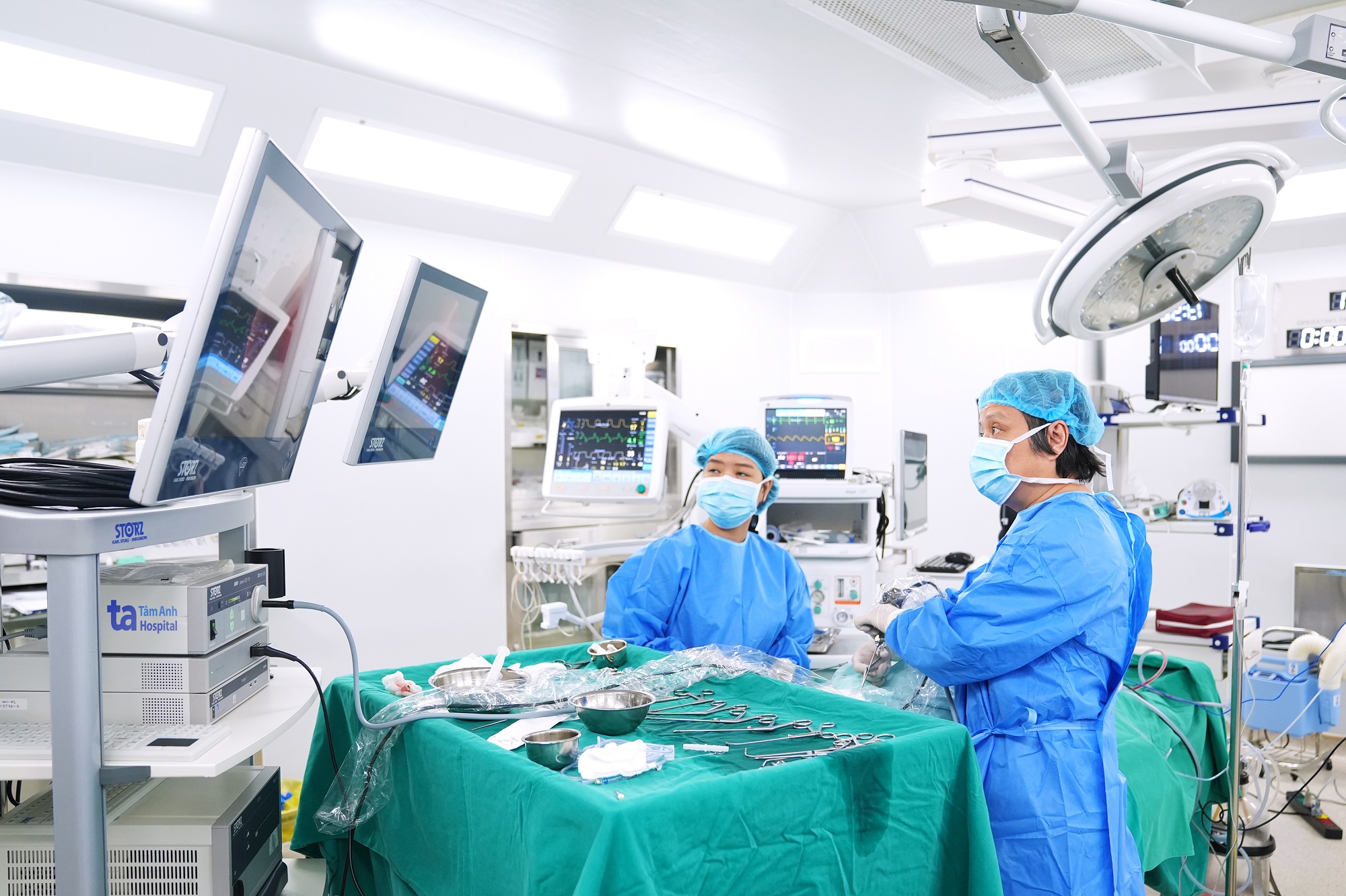An endoscopy at Tam Anh General Hospital in Hanoi revealed pus in her left middle meatus. A CT scan further showed opacity in her entire left maxillary sinus. Dr. Nguyen Duc Minh, from the Department of Otolaryngology, diagnosed her with left-sided fungal sinusitis.
Ms. Duong was prescribed antibiotics and scheduled for a follow-up appointment after two weeks. However, the fungal infection persisted. Doctors then decided to perform endoscopic surgery on her left maxillary sinus to investigate and address the underlying cause.
Using a specialized flexible endoscope, doctors examined her nasal passages and sinuses. The endoscope revealed a widespread fungal infection and inflammation. Ms. Duong's left maxillary sinus contained a significant amount of grayish-white, curd-like tissue adhering to the sinus wall, with surrounding mucosal edema. Doctors irrigated and cleaned the sinus, removing all the suspected fungal tissue for biopsy. The subsequent lab results confirmed the presence of Aspergillus, a common fungus found in soil, air, and house dust.
 |
Endoscopic sinus surgery to clean the sinus inflammation caused by fungus. Photo: *Tam Anh Hospital* |
"Healthy individuals rarely develop fungal sinusitis from exposure to fungal spores," Dr. Minh explained, adding that a weakened immune system, underlying conditions like diabetes, or a prolonged bout of the flu can create an environment conducive to fungal growth. Ms. Duong's recent case of influenza A, lasting several weeks, likely weakened her immune system, making her susceptible to the fungal infection.
Following the procedure, Ms. Duong recovered well and was discharged. Doctors advised her to maintain good sinus hygiene, adopt a healthy lifestyle, and avoid exposure to moldy environments. They also stressed the importance of boosting her immune system through a balanced diet to prevent recurrence.
Fungal sinusitis often goes undiagnosed due to its atypical symptoms. Patients may experience mild nasal congestion, fatigue, a dull headache, facial heaviness, or a low-grade fever in the afternoon. These symptoms are easily mistaken for a common cold or bacterial sinusitis.
Dr. Minh recommends that middle-aged and older adults maintain good respiratory hygiene and avoid dusty and moldy environments. Wearing a mask while cleaning, sweeping, or gardening is advisable, as Aspergillus is often found in dust, straw, and plant debris. Regularly cleaning air conditioners, air purifiers, blankets, and pillows is also important. Strengthening the immune system through a balanced diet and staying hydrated to keep nasal passages moist can also help prevent fungal sinusitis.
Khue Lam
*The patient's name has been changed.
| Readers can submit questions about ENT diseases here for doctors to answer. |












